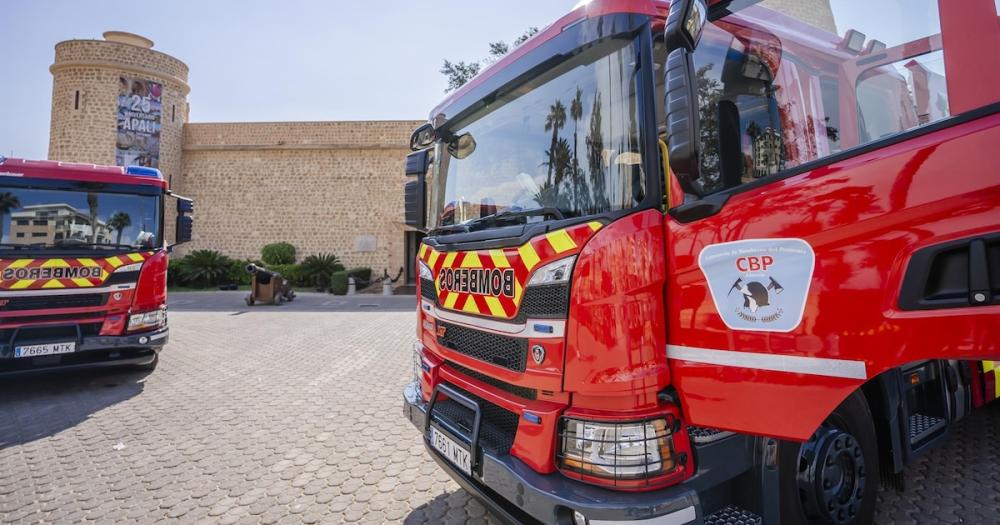Before the war, Alina Shynkar’s gynecologist advised her to avoid stress during her pregnancy and suggested that she spend time “watching cartoons and not doing much.” It was a pretty simple tip, but it wasn’t so easy to follow after the sirens of air strikes sounded, artillery blasts rattled windows, and fierce street fighting broke out a few kilometers from her maternity clinic.So, staying calm for the sake of her baby became Shynkar’s personal and silent battle in the Ukrainian war. Before the war began in late February, Shynkar was admitted to Maternity Hospital No. 5 in the capital, Kiev, to rest due to the risk of premature birth, but weeks later he witnessed the hospital plunge into a state of chaos and panic.“The girls were so stressed that they started giving birth” prematurely, she said. Doctors at his hospital took frightened pregnant women, some of them already in labor, into and out of a bomb shelter several times a day. Some were crying and others were bleeding.“They were frightened,” Shynkar recalled. “It was hard to see.”Dalina Levendarrenko, embarazada de gemelos, durante una revisión justo antes de que sonaran las sirenas antiaéreas en el Hospital de MaternidadAnna, de 37 años, fue consolada por su pareja, Yuri, mientras él cronometraba sus contracciones en el refugio del sótano del hospitalThe Russian invasion of Ukraine has been a nightmare for expectant mothers, especially in cities such as Mariupol, Kharcov and Chernigov, which have been subjected to almost constant bombardment since the beginning of the war.Last month, in the besieged city of Mariupol in southern Ukraine, Russian artillery hit a maternity hospital, resulting in the death of a pregnant woman and wounding other pregnant women, according to Ukrainian authorities.Women in war zones across the country have been forced to give birth in cold, dilapidated basements or subway stations crowded with people protecting themselves from shelling, and without electricity, running water or midwives to assist them.And the recent respite from the withdrawal of Russian forces will not do much good in many places. By the end of March, Russian missiles, bombs and artillery had destroyed at least 23 hospitals and health centers.Even pregnant women who have been lucky enough to escape war-torn areas have not been able to avoid stress, either because they have had to hurry in and out of shelters or because they had to undertake arduous and dangerous journeys to the relative security of western Ukraine or to neighbouring European countries.Una paciente del Hospital de Maternidad nº 5 subió las escaleras hasta el refugio del sótano mientras sonaban las sirenas antiaéreas el mes pasadoAlina Shynkar, de 34 años, que ha estado en reposo en el hospital desde antes del comienzo de la guerra, se encontraba en el sótano mientras sonaba una sirena el mes pasado. “Intento concentrarme en el bebé”, dijoAn estimated 265,000 Ukrainian women were pregnant when the war broke out, according to the United Nations Population Fund, the organization’s sexual and reproductive health agency. Some 80,000 births are expected in the next three months.War poses immediate and long-term risks to mothers, fathers and newborns. Among them are premature births, which can lead to a number of immediate and subsequent complications.“Because of the conditions of war, premature motherhood predisposes the baby to death or complications for the rest of his life,” said Jeanne Conry, president of the International Federation of Gynecology and Obstetrics. Although data are not yet available, she said that Ukrainian doctors report an increase in the number of births of premature babies, who are more likely to have respiratory, neurological and digestive problems in the future.Conry said lack of access to medicines to prevent postpartum hemorrhage could lead to an increase in maternal deaths. Babies are at risk, she said, because doctors may not have immediate access to the equipment needed to resuscitate them, and they only have a few moments to get them to breathe for the first time after birth.When the siren of an air raid sounded a recent day in the hospital, the staircase was filled with women from the maternity ward who grabbed their bellies and dragged their feet down to the shelter, a labyrinth with low ceilings and warehouses. One of the rooms became an improvised room for post-operative observation and neonatology. Another, still crammed with filing cabinets, became a delivery room. The women lay on mats on the floor.Yulia Sobchenko, de 27 años, al día siguiente de dar a luz a Mykhailo. Es “un niño de la guerra”, dijo de su hijoEnfermeras ucranianas atendiendo a los recién nacidos en una maternidad improvisada en un sótano de Kiev el mes pasadoDr. Olena Yarushchuk, Deputy Head of Maternity Hospital No. 5, directed the women to the benches along the walls, where they sat almost silently in the barely lit space, waiting the few minutes for the imminent danger to pass.Yarushchuk said he had made video calls to assist women giving birth in the basements of apartment buildings in the Kiev suburb of Bucha, a few tens of kilometers away, but at that time, the suburb was cut off from the capital by the fighting.“Our work has changed,” he said.Yulia Sobchenko, 27, reported that she went into labor around midnight on March 20 and was taken to hospital by an ambulance. But Ukrainian soldiers at checkpoints delayed their arrival and, afraid of the terrorists, insisted on opening the door of the ambulance to verify that it was a woman who was going to give birth.Her son was born at 2:55 in the morning, and after two hours she was taken to the basement by an air raid alert. “I, in my nightgown and with a cloth between my legs and a tiny newborn baby, and my husband with all our bags, had to go to the basement,” she said.His son, Mykhailo, was born healthy and weighed 2 and a half kilos, he said, and “he is a child of war.”Se calcula que 265.000 mujeres ucranianas estaban embarazadas cuando estalló la guerra, según el Fondo de Población de las Naciones UnidasEl hospital permite que las mujeres, sus maridos e hijos se registren tres semanas antes de la fecha del parto para evitar que se separen del hospital por el cambio de frenteAfter birth, these families face other problems. New mothers who recently left Maternity Hospital No. 5 have said that they cannot breastfeed, something Yarushchuk attributed to stress.Finding calm was the strategy of Shynkar, who worked as an event organizer before the war. Her maternity hospital in Kiev allows women, husbands and children to be admitted three weeks before their due date to prevent them from being separated from the medical facility due to changes on the war front.From her hospital room, a few days before giving birth on March 25, the woman smiled broadly and looked so calm that she didn’t seem to notice the whirlwind of lethal violence outside. He said he hadn’t seen or read any news about the war.Vladimir Shyian besando a su esposa, Lina Chayka, mientras ella sostenía a su bebé de un día, Maxim, el mes pasado en el refugio del sótano del Hospital de Maternidad nº 5 mientras las sirenas de advertencia sonaban fuera“I try to focus on the baby,” he said. “Can I help fight the war? I want to, but I can’t, not now. But I can’t panic,” he said. “I can stay safe. That’s what I can do.”Shynkar gave birth to a girl, Adeline. “It was a natural birth in a very pleasant and intimate environment,” she said of her delivery in the hospital. “My husband was present and cut the umbilical cord. To be honest, I have no idea if there were air raid sirens because I was completely immersed in the process.”It was a small personal victory in the midst of a much larger battle being fought around him.Both for her and for her country, she gave her baby Victoria’s middle name.© The New York Times 2022KEEP READING:The Russian military entered the Red Forest without any precautions, the most polluted area of ChernobylIn photos: Kiev region after the brutal passage of Russian troopsBoris Johnson traveled to Kiev, met with Zelensky and offered armored vehicles and anti-ship missiles
Related Posts
¿Cuál es la temperatura promedio en Alajuela?
December 4, 2024
Muere una mujer de 82 años en el incendio de una vivienda en Adra
December 4, 2024


